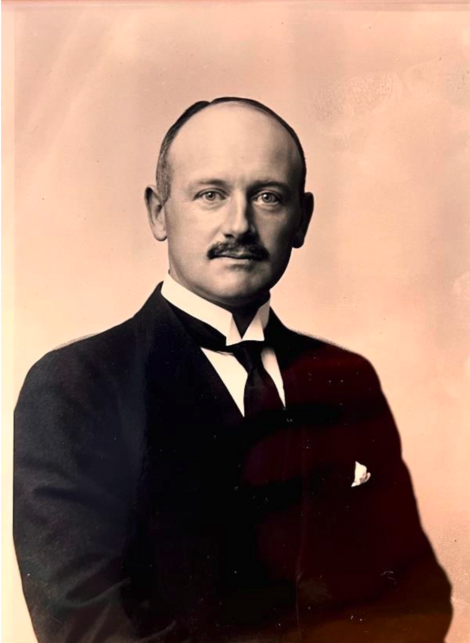How does the biodynamic impulse find its way into different countries and cultures? It is often pioneers who promote their vision of biodynamics with great dedication, and whose work continues to resonate today. In this study, the group of authors led by John Paull follows in the footsteps of one such pioneer: Carl Vett.
Summary
What is it about?
Carl Vett (1871-1956) was a Danish businessman who spent most of his life on a spiritual quest. This led him to Mahatma Gandhi in India, the Sufi monks in Turkey, and Rudolf Steiner in Switzerland, among others. His influence on the biodynamic movement in Denmark and beyond cannot be underestimated and will be examined in more detail below.
Spirituality as a compass
Inspired by Steiner's ideas, Vett became involved in the “Experimental Circle of the Agricultural Anthroposophical Society” in 1926 – an association of farmers promoting sustainable agricultural practices. Vett subsequently initiated government trials on the effectiveness of biodynamic methods and became the first advocate of biodynamics in Denmark. In 1936, he founded the Danish Biodynamic Association.
Pioneering work in Denmark
Carl Vett published the first Danish book on biodynamic agriculture and translated Ehrenfried Pfeiffer's seminal work (“Bio-Dynamic Farming and Gardening,” 1938) into Danish. Vett laid the foundation for today's organic movement in Denmark. His work interwove entrepreneurship, spirituality, scientific curiosity, and a spirit of reform. Today, Denmark plays a leading role in organic farming worldwide, with 4,500 hectares of biodynamic land and over 300,000 hectares of organically farmed land.
Commentary
Biodynamic relevance
From a biodynamic perspective, it is particularly exciting to see how Carl Vett translated Steiner's ideas into practical, scientifically based approaches. He understood agriculture as a living organism and promoted experiments to test the effectiveness of the preparations – long before biodynamic agriculture was publicly recognized. In his attempt to unite spiritual and scientific knowledge, he combined economic thinking with social responsibility. Vett understood biodynamics not only as an agricultural method, but also as a cultural and spiritual impulse for development.
Criticism
Carl Vett's experiments were methodologically weak, the results were hardly reproducible and often could not be objectively evaluated. In addition, his work was limited to rather wealthy circles, which hampered the widespread impact of biodynamics in Denmark. However, the impact of his pioneering work for the biodynamic and organic movement in Denmark and worldwide can still be felt today.
Sources and further links related to this article
- Original study:
Paull, J., Tutturen, T., Halberg, S. (2025) Carl Vett (1871-1956): Denmark’s Pioneer of Biodynamic Farming and Organic Agriculture. Advances in Social Sciences Research Journal, 12(08). 01-25.
https://doi.org/10.14738/assrj.1208.19200 - The study is covered by Creative Commons (link to license) and has been summarized for this study report.
